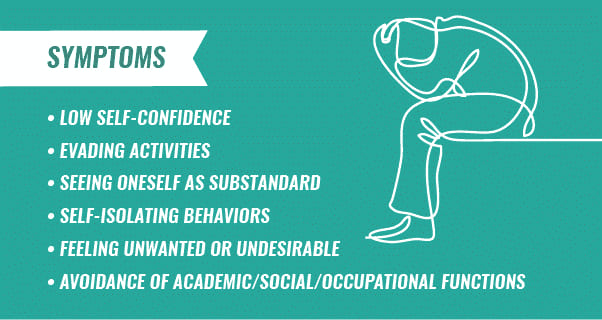Avoidant Personality Disorder Assessment Test
3 Min Free Avoidant Personality Disorder Assessment Test
Who Can Benefit From This Avoidant Personality Disorder Assessment Test?
The Avoidant Personality Disorder Assessment Test can benefit individuals who suspect they may have symptoms of avoidant personality disorder (AVPD) or those who have been diagnosed with AVPD and would like to monitor their symptoms. This assessment test can also be used by mental health professionals to aid in the diagnosis of AVPD and to develop an appropriate treatment plan for their patients.
It is important to note that the Avoidant Personality Disorder Assessment Test is not a substitute for a professional diagnosis by a mental health provider, but it can serve as a useful tool for individuals who are seeking to better understand their symptoms and improve their overall mental health.

Avoidant Personality Disorder Assessment Test Accuracy

The accuracy of the Avoidant Personality Disorder Assessment Test depends on several factors, including the quality of the questions, the honesty and self-awareness of the person taking the test, and the interpretation of the results.
It is important to note that the Avoidant Personality Disorder Assessment Test is not a substitute for a professional diagnosis by a mental health provider. While this test can provide helpful insights and indicators of possible symptoms, a professional diagnosis requires a comprehensive evaluation that takes into account a variety of factors, such as the person’s medical history, current symptoms, and personal circumstances.
It is also worth noting that self-assessment tests can be affected by biases and limitations, such as social desirability bias, where individuals may answer questions in a way that they believe is socially desirable, rather than accurately reflecting their actual experiences or feelings.
Types of Avoidant Personality Disorder Assessment Test
Structured Clinical Interview for DSM-5 (SCID-5):
The SCID-5 is a standardized interview format that is widely used in clinical and research settings to diagnose mental disorders, including avoidant personality disorder.
Millon Clinical Multiaxial Inventory-III (MCMI-III):
The MCMI-III is a personality assessment tool that uses a self-report questionnaire to assess for different personality disorders, including avoidant personality disorder.
Personality Diagnostic Questionnaire-4 (PDQ-4):
The PDQ-4 is a self-report questionnaire that assesses for different personality disorders, including avoidant personality disorder.
Avoidant Personality Disorder Scale (APD Scale):
The APD Scale is a self-report questionnaire that is specifically designed to assess for avoidant personality disorder symptoms.
Minnesota Multiphasic Personality Inventory-2 (MMPI-2):
The MMPI-2 is a widely used personality assessment tool that can also help identify symptoms of avoidant personality disorder.
International Personality Disorder Examination (IPDE):
The IPDE is a diagnostic interview tool that assesses for personality disorders, including avoidant personality disorder.
Treating Avoidant Personality Disorder
Avoidant personality disorder (AVPD) can be a challenging condition to treat, but it is possible with the help of a mental health professional. Here are some common treatments for AVPD:
- Psychotherapy: Psychotherapy, also known as talk therapy, is the most common treatment for AVPD. Cognitive-behavioral therapy (CBT) and psychodynamic therapy are two forms of therapy that are often used to treat AVPD. CBT can help individuals identify and challenge negative thoughts and beliefs that may be contributing to their avoidance behaviors, while psychodynamic therapy can help individuals explore the underlying emotional issues that may be causing their symptoms.
- Medication: Antidepressant and anti-anxiety medications may be used to treat AVPD, particularly if the individual is also struggling with depression or anxiety symptoms.
- Group therapy: Group therapy can be helpful for individuals with AVPD, as it provides a safe and supportive environment to practice social skills and build connections with others who have similar struggles.
- Social skills training: Social skills training can help individuals with AVPD develop the skills they need to interact more effectively with others, such as assertiveness and communication skills.
- Exposure therapy: Exposure therapy involves gradually exposing the individual to situations that they may be avoiding, with the goal of helping them become more comfortable and less anxious in those situations over time.

